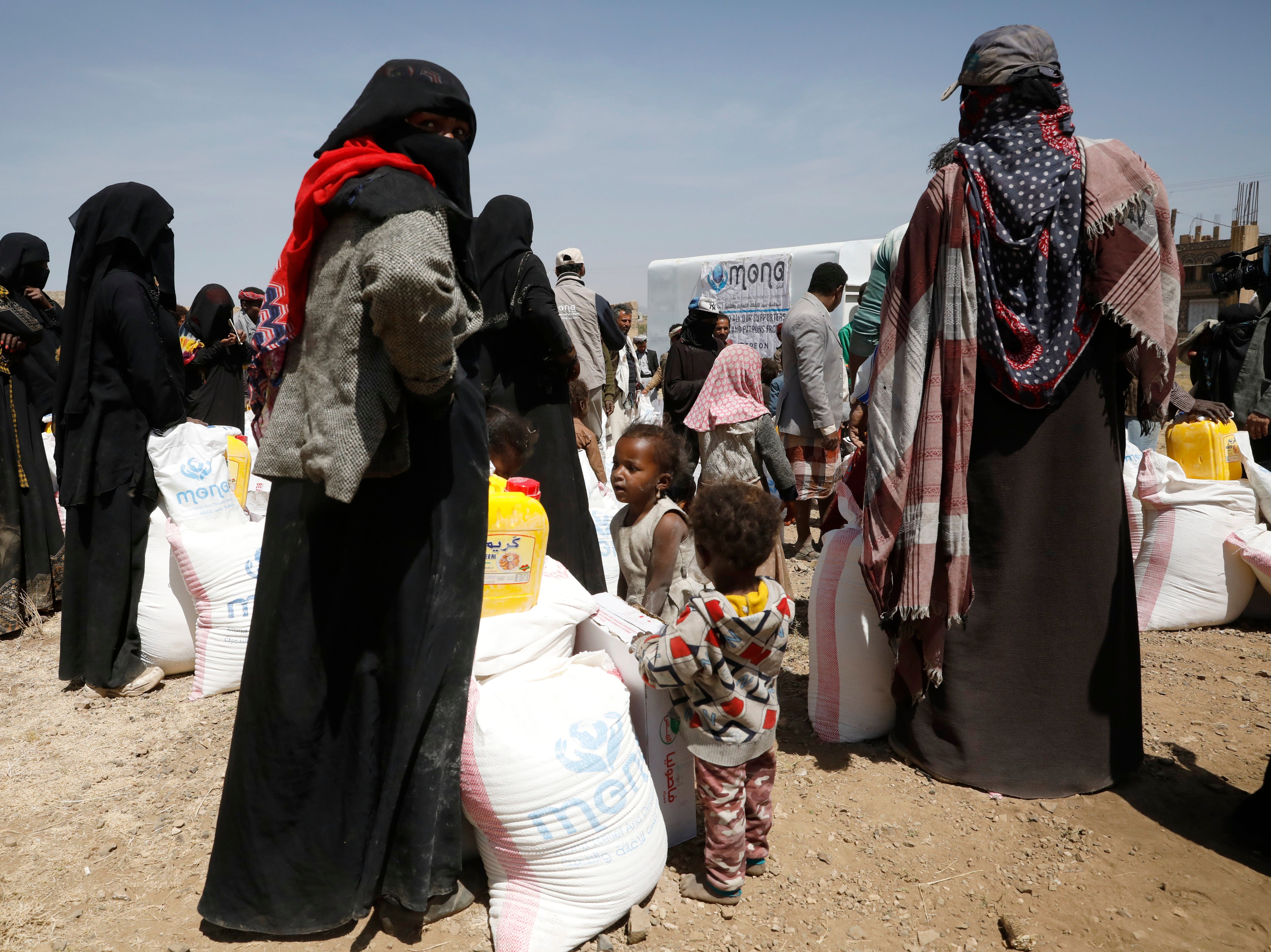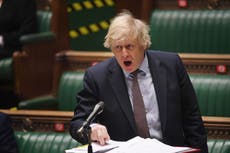UN chief attacks Yemen aid cut as attempt to ‘balance the books on the backs of starving people’
‘It will have the effect of large scale loss of life and the piling on of misery’, head of humanitarian affairs tells Boris Johnson

Your support helps us to tell the story
From reproductive rights to climate change to Big Tech, The Independent is on the ground when the story is developing. Whether it's investigating the financials of Elon Musk's pro-Trump PAC or producing our latest documentary, 'The A Word', which shines a light on the American women fighting for reproductive rights, we know how important it is to parse out the facts from the messaging.
At such a critical moment in US history, we need reporters on the ground. Your donation allows us to keep sending journalists to speak to both sides of the story.
The Independent is trusted by Americans across the entire political spectrum. And unlike many other quality news outlets, we choose not to lock Americans out of our reporting and analysis with paywalls. We believe quality journalism should be available to everyone, paid for by those who can afford it.
Your support makes all the difference.A massive cut in UK aid to Yemen is an attempt to “balance the books on the backs of starving people”, says the United Nations’ head of humanitarian affairs in a stinging attack.
Mark Lowcock said he was shocked by the decision – to save “a relatively small amount of money” – which would lead to thousands of deaths and damage the UK’s global influence.
He also warned of a knock-on impact on UN efforts to raise money for Syrian refugees at a fundraising conference this month and funds to help poorer countries prevent runaway climate change.
Mr Lowcock added to widespread condemnation of the £87m of aid pledged by the UK – down from £160m at the same event last year and from the £214m it actually delivered in 2020-21.
“There is no getting away from the fact that it will have the effect of large scale loss of life and the piling on of misery in lots of places,” the former permanent secretary at the Department for International Development said.
Boris Johnson has blamed the “current straitened circumstances” caused by the Covid-19 pandemic for the cut, insisting the public thinks the government has its “priorities right”.
Similar cuts to a swathe of the world’s other poorest countries are set to start within weeks – as MPs are denied a promised vote on the controversy.
But Mr Lowcock said the amount saved was “actually – in the great scheme of things at the moment – a relatively small amount of money” and would have wider consequences.
“The decision, in other words, to balance the books on the backs of the starving people of Yemen, has consequences not just for Yemenis now, but for the world in the long term,” he told The Guardian.
“I think it’s indisputable that the UK has particular responsibilities in Yemen,” said Mr Lowcock, of the world’s worst humanitarian crisis.
“It is the penholder at the UN security council, a substantial provider of humanitarian assistance in the past and it has historical responsibilities. So I think it is quite shocking that there was such a huge cut.”
The UN had hoped to raise $3.85bn (£2.76bn) for Yemen from governments and donors at the virtual pledging conference last Monday, but received only $1.7bn.
Mr Lowcock added: “People don’t remember this very well now, but in 2014 the UN appeal for the Syria response was much less well supported than it had been in 2012 and 2013.
“One consequence of that was the exodus in 2015. It’s an unusually clear example of how failing to keep a situation stable and supporting people where they are had quite direct consequences.”
At the weekend, more than 100 charities said the UK’s reputation for compassion will be “destroyed” unless the cut is halted, condemning it as “a betrayal” and “a death sentence”.





Join our commenting forum
Join thought-provoking conversations, follow other Independent readers and see their replies
Comments